The National, 23rd December:
‘Greta Thunberg arrested at London hunger strikers protest’
Climate activist Greta Thunberg has been arrested in central London in support of the Palestine Action protesters.
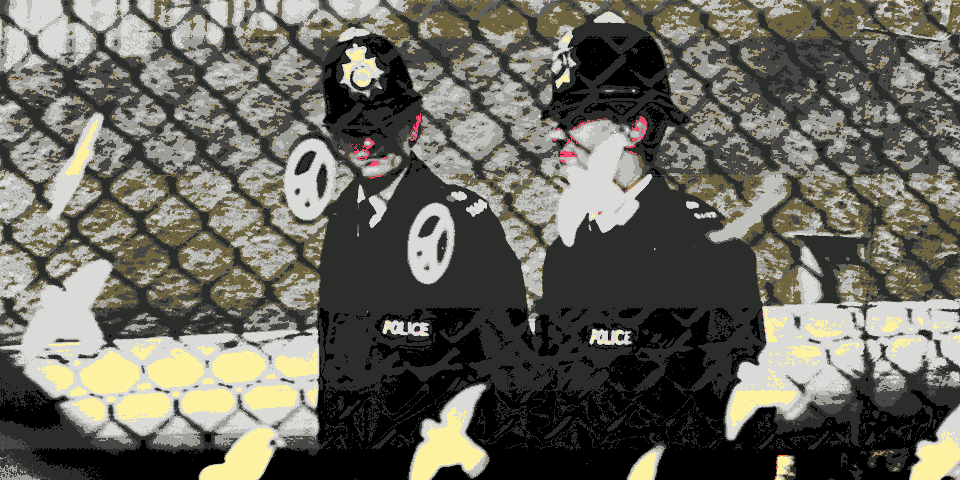
In the mid-2010s, in-part to support UK anti-fracking campaigns, we created an activist’s legal resource to support direct action. That resource is still available to download here, with the qualification that it is ‘out-of-date’. As the laws around public protest and dissent in Britain have changed so quickly and extensively over the last three years it became out-of-date faster than we could maintain it. This update explains why, and what happens next.
In this page we outline the history of our ‘Free Range Activism Kit’ (FRAK), the government backlash which meant it went out-of-date so quickly, and our views on what comes next. Yes, this page contains open criticism of certain sections of the environmental movement. We choose to describe the issue in this way because: (a) our initial analysis of why their campaign would fail were proved correct; and (b) why that process failed shows how we should work differently in the future.
The need for this resource arose in the wake of the crackdown on political and environmental dissent in the 2000s – a deliberate extension of the ‘War on Terror’ by Britain’s political Right, using terms like ‘domestic extremist’ or ‘non-violent extremism’ to target peaceful political dissent.
‘FRAK’ began as an answer to the increasing numbers of requests for support on creating campaigns which, to some extent, utilized the law. The resources we had at the time were primarily the result of protests in the 1990s and 2000s, and so we set out to update our materials for the legal landscape that existed around 2015/2016. The result was, ‘The Protestagram’:
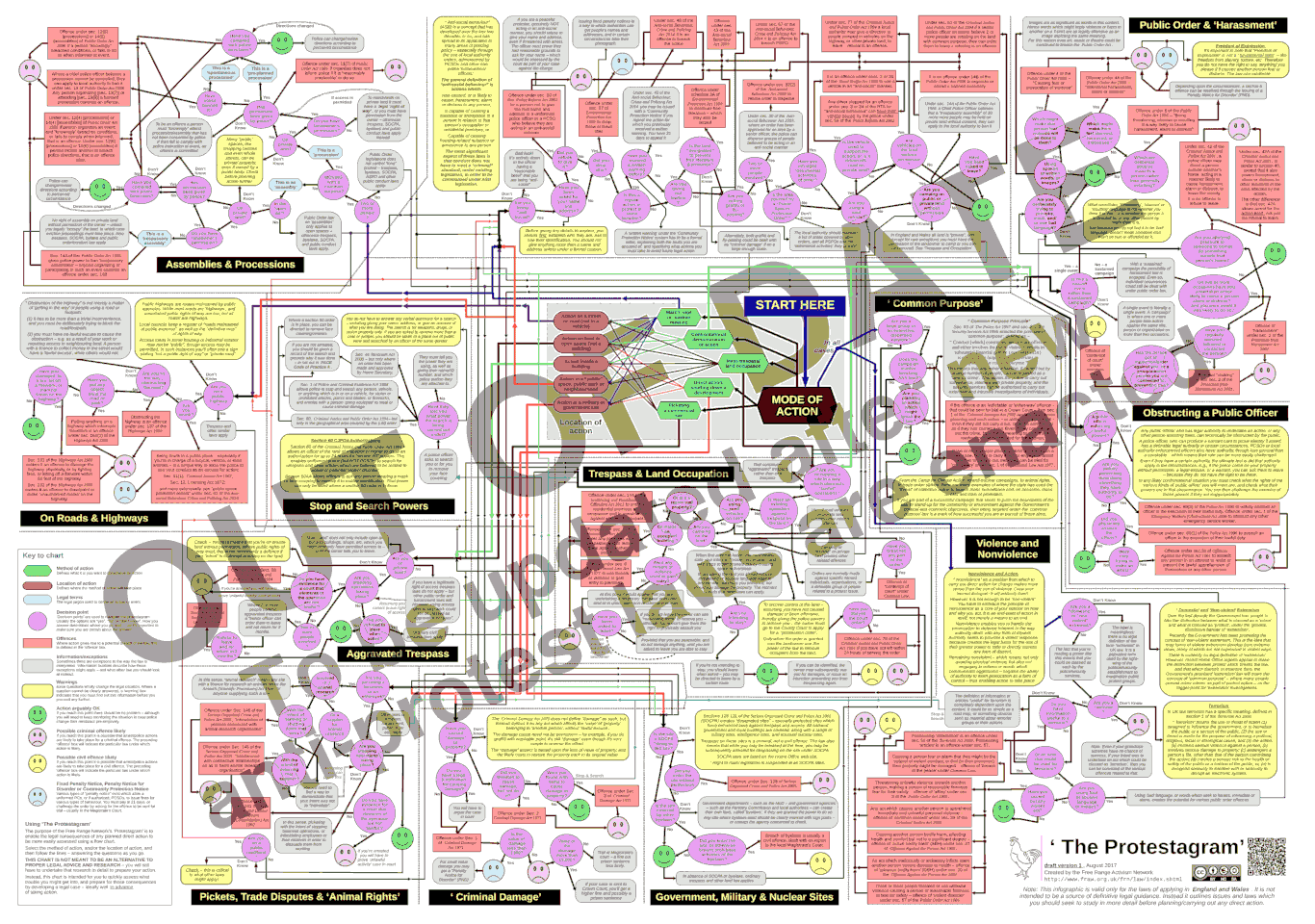
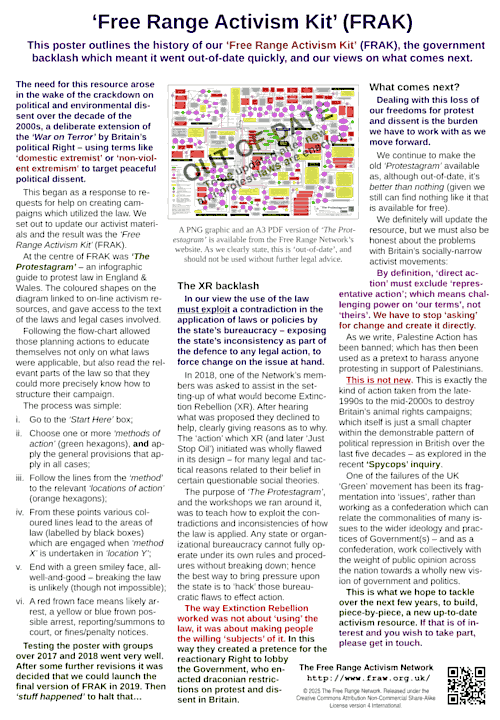
‘The Protestagram’ was at the heart of an on-line resource we called the ‘Free Range Activism Kit’ (FRAK). The various coloured shapes on the diagram above linked to on-line activism resources – as well as linking directly to the text of the laws and legal cases involved. Following the flow-chart allowed those planning actions to educate themselves not only on what laws were applicable, but also to read the actual section or paragraph of the law so that they could more precisely know how to structure their campaign – to avoid, circumvent, or deliberately engage with the legal framework to the extent which they desired.
The process was very simple:
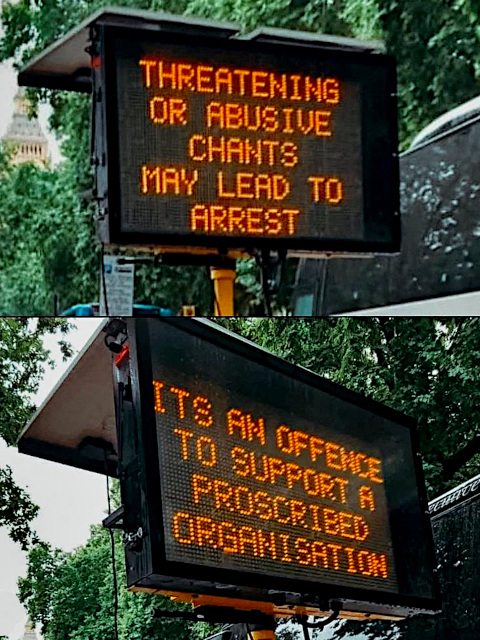
Testing the poster with groups and audiences over 2017 and 2018 went very well. After some further revisions it was decided that we could launch the final version of FRAK in 2019. Then events spiralled beyond our influence…
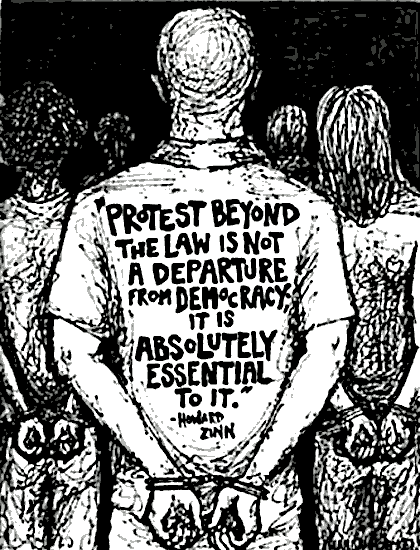
In our view the use of the law must exploit a contradiction in the application of the law by the state’s bureaucracy – in ways which, by exposing the state’s inconsistency as part of the defence to any legal action, forced action to be taken on that issue.
‘The Protestagram’, at its simplest, was a means to teach activists not only how to spot inconsistencies in the application of the law, but also the techniques of structuring campaigns to exploit those inconsistencies. We took the law seriously – and by actively using the law it ‘belonged to us’ just as much as it did the the state or corporations.
In was our long experience of using the law as a protest tool which had led to those enquries for help. In the middle of 2018, one of the Network’s members was asked to assist in the setting up of what would become ‘Extinction Rebellion’ (XR).
After hearing what was proposed they declined to help, and clearly gave the reasons as to why.
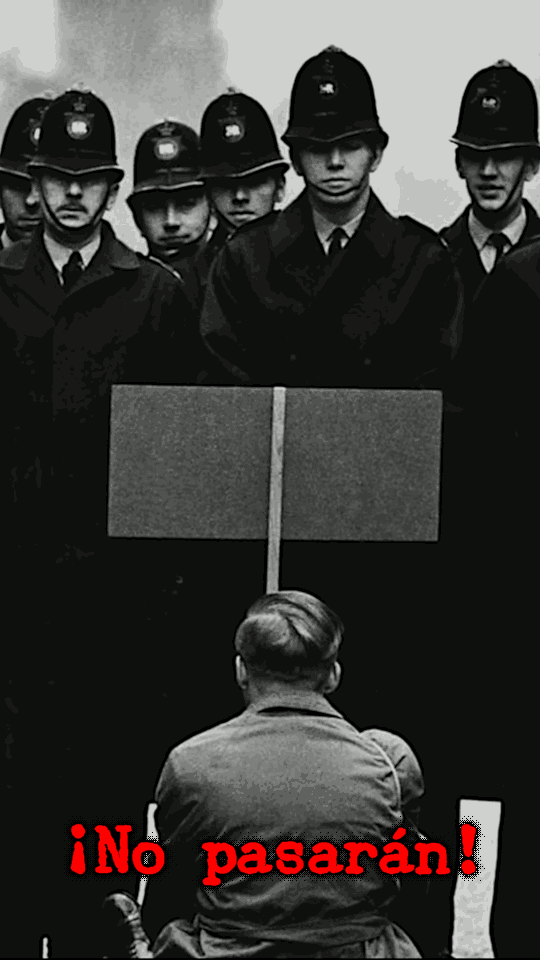
What XR proposed was not only a misuse of the legal process, based upon a misleading analysis (it was produced by researchers with links to the US State Department & NATO) of an extremely debatable social theory (it was a blindly Statist attempt to force change which could not succeed within its own logic, or be truly inclusive of those it claims to represent). The structure of their entire action rested upon a naive, and arguably privileged view of how the British state operated.
We (and others) expressed this criticism of XR’s strategy on a number of occasions from late-2018 (before their first ‘rebellion’) through to 2020. Our specific point was that the use of the law in this way would, under the conditions prevailing at the time, almost certainly fail, and lead to a backlash from the reactionary government then in power.
At the ‘Green Gathering’ in 2019, a senior figure from Extinction Rebellion saw the ‘The Protestagram’ on our Eexhibition stall and asked if they could use it. We said, ‘no’. They offered money. We said, ‘no’. The reasons for refusal we gave were the same as in 2018.
The purpose of ‘The Protestagram’, and the workshops which we ran around it, were about exploiting the contradictions and inconsistencies of how the law is applied in Britain and most other states. Any state or organizational bureaucracy cannot fully operate under its own rules and procedures without breaking down; hence the best way to bring pressure upon the state is to ‘hack’ those bureaucratic flaws in order to effect action. This is what large corporations pay expensive lawyers to do, and there is no reason why – working cooperatively and sharing resources – local campaigns cannot do something similar. This is what we ourselves have done in the past, and it’s something we’ve been running workshops on Asince the late 1990s.

The way Extinction Rebellion worked was not about ‘using’ the law, it was about making people the willing ‘subjects’ of it: They shepherded people towards breaking the law with no legal defence, and no actual evidence of unlawful wrong-doing by the state in order to base a legal defence upon (sorry, but there is no law that prevents politicians destroying the planet – otherwise Britain, complying with the UN Resolution banning them, could not build and stockpile nuclear weapons).
In this way: Not only did XR burn the goodwill of many people (a number of whom came to us in the aftermath for advice); and do so against the advice of many long-serving UK activists; they willingly created an agenda for the reactionary Conservative government to enact draconian restrictions on dissent in Britain.
Our prior-speculation was proven correct – and the backlash that XR’s willing ineptitude gave rise to has eliminated large sections of our freedom for protest and dissent. Dealing with this loss/failure is the burden we have to work with as we move forward.
The issue of ‘using the law’ is far larger than ‘the law’ itself. XR, whose only focus was climate change, could not see the practical realities of using the law as a tool of protest – and marched hundreds of their supporters into the willing arms of the police. We have to be more ‘intelligent’ in our actions.
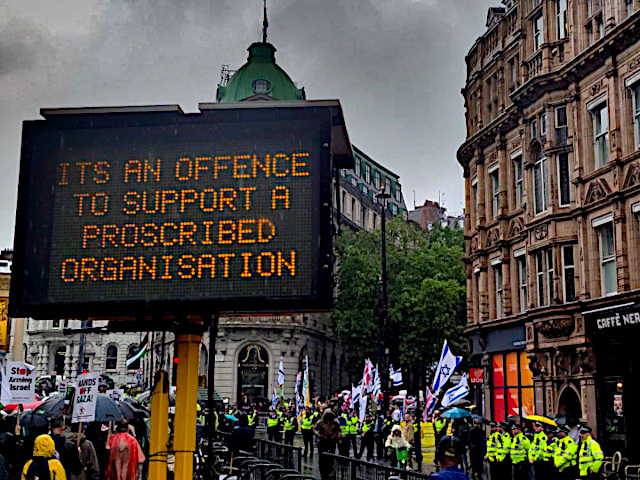
As we write this Palestine Action has been banned; which has then been used as a pretext to harass anyone protesting in support of Palestinians, as well as attempts to de-bank unrelated Palestinian lobby groups.
This is not new. This is exactly the kind of action taken from the late-1990s to the mid-2000s to destroy Britain’s animal rights campaigns; which itself is just a small chapter within the demonstrable pattern of political repression in British over the last five decades – as explored in the recent ‘Spycops’ inquiry.
The problem is that many do not see this because, across British society, we do not have a relatable ‘peoples' history’ of activism in Britain; and without that, people have no common baseline from which to contrast present-day struggles and learn from historic events.
We continue to make the old ‘Protestagram’ available because it’s better than nothing – given we still can find nothing like it that is available to UK activist groups for free. However, going forward, we have to update it and that means being brutally honest about the problems with Britain’s ‘wannabe’ activist movements: By definition, ‘direct action’ must exclude ‘representative action’; which means challenging power on ‘our terms’, not ‘theirs’.
The ‘new Labour’ government is showing similar authoritarian tendencies to Tony Bliar’s government, who were just as repressive as the last Conservative government. E.g. the previous Labour government introduced the draconian measures of the ‘Terrorism Act’ in July 2000, over a year before the events of 9/11, and then doubled-down with further measures to repress dissent, surveil the public, and marginalize anyone who questioned Britain’s political status quo.

With British politics being pushed further to the Right by media oligarchs and lobbyists – such as the libertarian groups around Tufton Street – we cannot assume that the current situation will improve for perhaps a decade or more. With an outlook which forecasts further economic strife, we must also assume that, in an effort to prevent further dissent over national and foreign policy, UK governments will continue to use existing and new measures to suppress the public’s ability to organize for change.
The skills of activism are multi-faceted, and require a broad understanding of government and political economy – yet too often these are applied to ‘single issues’. One of the greatest failures of the UK ‘Green’ movement has been its fragmentation into ‘issues’, rather than working as a confederation which can relate the commonalities of those many issues to the methods and practices of the British government(s) – and as a confederation, work collectively with the weight of public opinion across the nation towards a wholly new vision of government and politics.
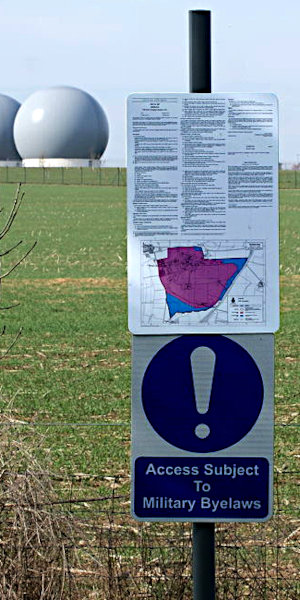
‘Activism’ is a craft: From disability groups, to peace campaigners, to farmers, there is no restriction on who can study and use these techniques; but like any ‘craft’ it takes study and application, and to be effective, it requires insight into our national ‘political economy’ – to give a strategic and tactical understanding of the power of the state, its historic suppression of the British peoples’ demand for change, and thus how we should seek to press our demands for change today.
This is the subject that we hope to tackle over the next few years, to build, piece-by-piece, a new up-to-date activism resource. If that is of interest and you wish to take part, please get in touch.